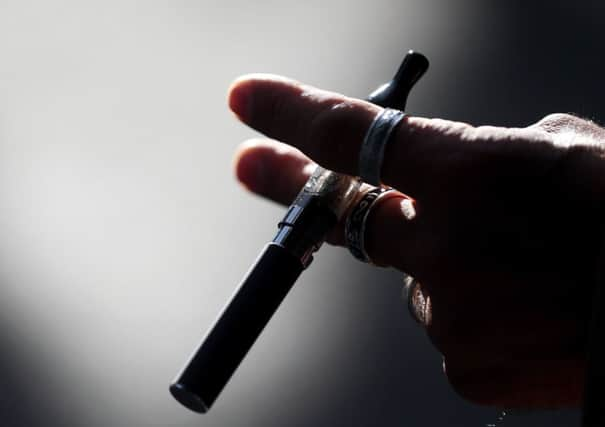Lyndsay Buckland: Do e-cigs encourage lighting up?


Now, a week rarely goes by when an e-mail does not pop into my inbox offering an interview with the founder of a new e-cigarette company, hoping to cash in on this increasingly lucrative business.
But this emerging market also brings questions. For example, should e-cigarettes be banned in the same places we would ban the tobacco-containing varieties? Many argue not, as they believe these are vital devices which help smokers to quit without any risk to themselves or those around them. But those working in public health say the very act of simulating smoking contributes to the normalisation of tobacco, particularly among children and young people.
Advertisement
Hide AdAdvertisement
Hide AdWith this in mind, the organisers of the Glasgow 2014 Commonwealth Games this week took the decision to extend its smoking ban in and around competition venues to include e-cigarettes. A ban, they said, would also help avoid confusion over whether smoking was permitted. After all, a swirl of vapour on one side of the stadium could easily be mistaken for a puff of smoke from someone on the other side.
Some say that as a health-promoting event, surely the Games should allow a practice which helps smokers quit their harmful habit. But it is exactly because it is a health-promoting event that e-cigarettes cannot be allowed at the Games.
Research suggests that e-cigarettes may contain toxic substances as well as varying levels of nicotine. These products are so far unregulated, though there are plans to license them as medicines from 2016.
As to whether e-cigarettes will encourage children and young people to try them out, maybe graduating to the real thing? Well, the jury is out. I’m not an impressionable teenager. But as a 30-something woman who does not smoke, I’m worryingly tempted by the cherry-cola flavoured ones!
With much more research and the vitally-needed regulation, e-cigarettes could one day play a significant role in the battle against tobacco. Indeed, some experts suggest they could save millions of lives around the world.
But it is perhaps telling that the tobacco industry has also been exploring the e-cigarette market to claim a stake for itself. What the world needs is a reliable method of weaning smokers off nicotine, not something which perpetuates their habit until they fall off the e-wagon, with their trusted cigarettes waiting to pick them up and carry on where they left off.